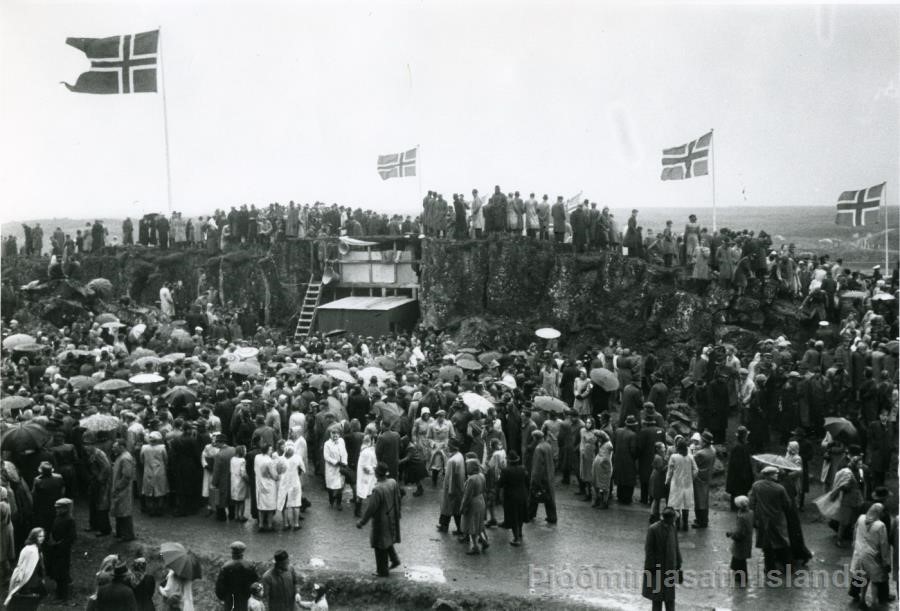"I’ve come to buy Tivoli”: Colonial desires and anxieties in Iceland in a new millennium
The economic boom in Iceland in the early 2000s reflected how colonial memory can linger on and become mobilized. During this period, Iceland became internationally visible due to aggressive global investments, embodied for the most part by male businessmen frequently referred to as 'Vikings'. This economic expansion, or 'útrás' as it is called in Icelandic, focused strongly on Denmark, reflecting how Iceland‘s history under Danish rule was particularly salient.
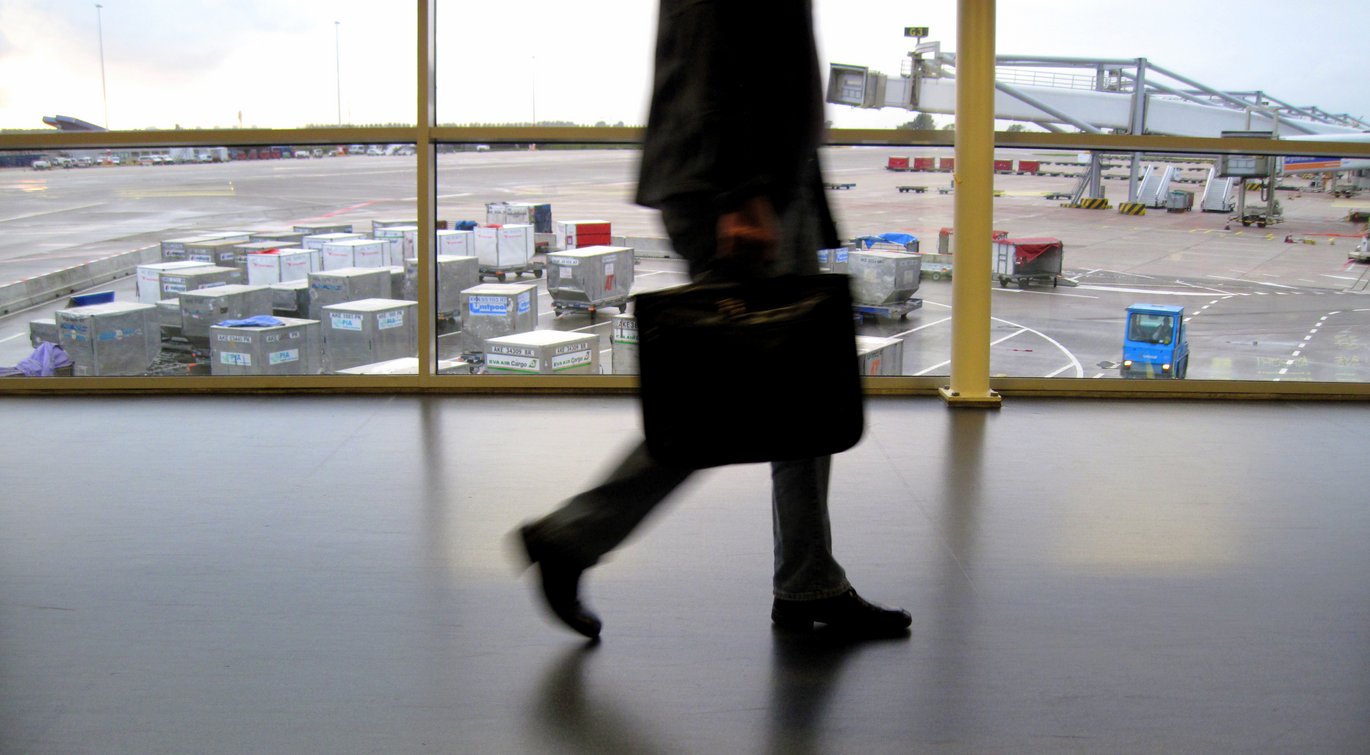
In the early 2000s, Icelandic business people were all over the place, buying up firms here, there and everywhere. The country had no history of investment banking, and had limited experience in commercial banking in an international sense since it only became part of the global financial market in the 1990s through various processes of neoliberalization. In the 2000s, a masculine image of the banker became an iconic figure for Iceland both internally and externally, embodied in the phrase ‘business-Viking’ (útrásarvíkingur). Especially during the final years before the massive economic crash of 2008, this figure was widely celebrated and evoked not only outside of Iceland but also by the Icelandic media, politicians and the general public. Across the global north and beyond, the figure of the banker lent “imaginative cohesion” to a diverse set of practices, as argued by Hannah Appel in her 2014 paper; a slim and glamorous figure replacing an older image of the banker as dull and dry. During this celebration of the period of economic boom, the memory of Danish rule bubbled to the surface. Many of the processes taking place during that time – including the strong support of high-risk banking by government and public alike – are difficult to understand without this important context.
Colonial relations during the 19th and 20th centuries
The late 19th and early 20th century were defined by a strong call in Iceland for full independence from Denmark. Iceland was not a colony in the same sense as, for example, most African countries at the time that were brutally subjugated under the control of various European countries. Iceland was under Norwegian rule from 1260s, but became in 1380 a part of Denmark with the unification of the Danish and Norwegian crowns. Despite this, Icelandic discussions became characterized by an anxiety of being too closely associated with other colonized peoples and the desire for recognition from more powerful European nations as being on an equal footing. The question of if and how Iceland could be labelled as a colony is to a certain extent a technical one, but what is significant here is that, at the end of the 19th century, people living in Iceland started to feel a need to emphasize that they were not colonial subjects (See Loftsdóttir, 2019 for more on this).
There is a long history of Iceland being exoticized in narratives written by elite European travelers in Iceland, particularly given the plentiful opportunities provided by the various explorations of Iceland by European scholars and travelers over the years.
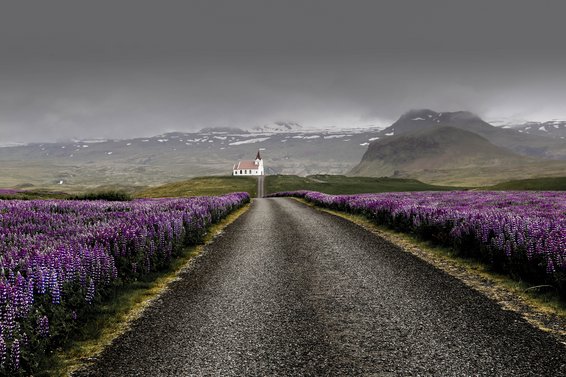
PICTURE: Westfjords, Iceland. Photo by Cassie Boca on Unsplash.
In late 19th and early 20th century Denmark, Iceland was generally seen as pre-modern and belonging in the past, while also being seen as a country that preserved old Nordic heritage. Icelandic demands for independence were underpinned by references to the uniqueness of the country due to its language and medieval manuscripts. However, while seeing independence as a natural step for themselves, Icelandic people did not necessarily recognize that this was the case for other colonized people under the rule of different European states. The Icelandic discourse at the time thus emphasized that Iceland and its inhabitants belonged within a community of civilized, modernizing nations. Iceland went on to gain full independence in 1944.
Economic boom and colonial memory
Somewhat surprisingly perhaps, the boom period in the 2000s engaged strongly with the memory of Iceland’s history as being under Danish rule, and this was widely reflected in the media as well as in political and public discourse. A research project that I undertook in the early 2010s on the economic crash reflected the importance of this past colonial relationship: the subject came up time and again in the 60 interviews I undertook with people engaged in one way or another with the economic expansion in Iceland or working with international development assistance in Iceland. The same was the case with the other materials I analyzed, including business newspapers, different media events such as the Icesave dispute, the closing of MacDonald’s in Iceland and 30 additional interviews with people from migrant backgrounds.
Interestingly, these different levels of discourse reflected early 20th century discourses - nationalistic rhetoric emphasized Iceland’s exceptionalism, as it did then, and Iceland was placed as belonging with the most powerful European nations. Often these discourses referred directly to Iceland’s past relationship with Denmark. Iceland’s two major business weeklies in 2006 and 2007 covered conventional business news, but the papers also often carried materials that reflected on how Iceland was portrayed internationally as well as Iceland’s relationship with Denmark; the memory of Danish rule was salient. The acquisition of companies and property in Denmark also received special attention in Iceland, in particular the buying of historically important establishments such as the famous department stores Illum and Magasin du Nord, and Hotel d’Angleterre, all located in the heart of Copenhagen. In September 2007, Morgunblaðið remarked in one of its headlines: “Icelanders Still Buying Companies in Denmark.” The text explained that “[d]epartment stores, newspapers, hotels, airlines and now a film company. Every day brings news of acquisitions by Icelanders of Danish companies.”
One of the businessmen I interviewed said that almost always during his frequent business trips to Denmark, the taxi drivers would ask what the Icelanders were going to buy next. When he jokingly said that he had come “to buy Tivoli,” he said they all expressed shock. Often in my interviews, people referred to the relationship between Denmark and Iceland as a relationship of brothers, which reflected not only a sense of intimacy but also hierarchy as Iceland was always portrayed as the younger brother.
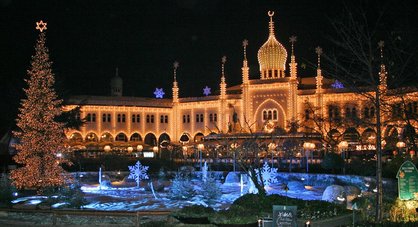
PICTURE: "I've come to buy Tivoli", a businessman jokingly said. Here is a view of Tivoli Gardens, an amusement park located in the heart Copenhagen during Winter time. Photo: Pedro Plassen Lopes, Flickr
In my interview with a Danish banker a few years after the economic crash, he referred to the Icelandic businessmen as “Gucci bankers,“ where everything was “over the top,“ exemplifying this by describing a fishing trip where the Icelandic hosts were serving champagne and expensive whisky instead of something that he saw as more suitable for the occasion. The allure of the business-Viking figure in Iceland was also strong due to the smallness of the country, or as someone explained to me in an interview later: “This was almost you, somehow,” meaning that anyone in Iceland could be a business-Viking.
In 2006 the Danske Bank in Denmark and two other international agencies (Merrill Lynch and Fitch Ratings) raised concerns about the sustainability of the economic boom in Iceland. This was largely dismissed in Iceland. The Danske Bank report was interpreted as jealousy of the country's economic success, which was widely acknowledged to have its roots in the past relationship between Denmark and Iceland. The acting Minister of Foreign Affairs in Iceland stated, for example, that there was something “unnatural” about this criticism, linking it to past relations, presuming that Danish jealousy of Icelanders was due to their success in business. However, in 2008, Iceland underwent a massive economic crash, and the Icelandic government had to bail out three of Iceland’s banks after they failed to refinance their short-term debt. These banks had, ironically, been privatized only a few years earlier in 2003.
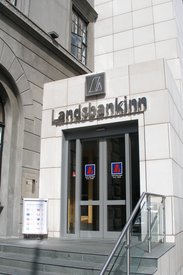
PICTURE: Landsbankinn in Iceland taken in 2007. Photo: Thomas Quine, Flickr.
A dualistic colonial experience
The economic expansion involved direct and indirect references to the memory of Iceland under Danish rule in various ways. One was the way Icelanders in general talked about the business-Vikings which, showing a strong connection to nationalistic discourses in particularly the early 20th century, expressed the desire in different spheres of Icelandic society to demonstrate that Icelanders were stepping higher than - or in front of “the Danes” - in the hierarchy of the community of nations. The economic boom also engaged with coloniality in many other different ways – to use Aníbal Quijano‘s concept – where economic expansion was portrayed in masculine terms, as conquest and domination. Also, the economic boom drew migrant workers to Iceland in unprecedented numbers especially from Poland but also from other countries such as Lithuania. These populations were often referred to in racialized terms as inferior to Icelanders, activating older discourses within Europe between East and West (See more in Loftsdóttir 2017).
These different strands can be seen as reflecting Iceland’s dualistic colonial experience: First, as subjects of a colonial nation and imperialism and, second, as part of the global north where they have contributed to the reproduction of coloniality. Here, the acknowledgement of Iceland’s history as under Danish rule is not intended to reproduce ideas of racial exceptionalism , but rather to acknowledge that Iceland’s history has shaped how racist and nationalistic discourses have been expressed in Iceland.
PICTURE: Republican celebrations in Iceland in the wake of the 1944 Independence Referendum. Photo: Courtesy of The National Museum of Iceland.
In retrospect
The post-crash period has involved different ways of engaging with coloniality as well, particularly to do with the anxieties of being associated with formerly colonized people or the global south. There has also been strong criticism of the pre-crash nationalistic rhetoric, which has involved much more critical engagement with nationalist rhetoric from earlier periods as well. I suspect that one of the lingering effects is the disappearance of the emotional investment in Iceland’s past relationship with Denmark, which can also be explained with a new generation brought up in a much larger globalized world than previous generations. To put it another way, while some aspects of nationalism persist in recycled or new forms, I would be surprised if today it would center around Denmark.
Some important questions can be asked in retrospect: Why was there this emotional investment in Danish people and their opinions of the economic “miracle”? And why did Icelandic business-Vikings choose to buy companies in Denmark, rather than elsewhere, and even those that were historically important to Danish identity? Did it make it easier to mobilize the support of people living in Iceland due to colonial memory and, in turn, make it easier for the country to support the significant economic risks that were taken even by its national institutions? Or, did it merely fit well with a nationalistic portrayal of Icelanders as different and better than everyone else?
Further reading
- Hannah Appel, 'Finance, Figuration, and the Alternative Banking Group of Occupy Wall Street.' Signs 40,1 (2014) pp. 53–58.
- Kristin Loftsdóttir, 'Being ‘The Damned Foreigner’: Affective National Sentiments and Racialization of Lithuanians in Iceland.' Nordic Journal of Migration Research, 7,2 (2017) p. 70.
- Kristin Loftsdóttir, Crisis and Coloniality at Europe’s Margins: Creating Exotic Iceland, (London: Routledge, 2019).
- Linda McDowell, 'Performing Work: Bodily Representations in Merchant Banks.', Environment and Planning D: Society and Space, 12, 6 (1994) pp. 727–750.
- Már Wolfgang Mixa, 'A Day in the Life of an Icelandic Banker.' in E. Paul Durrenberger and Gísli Pálsson, Gambling Dept: Iceland´s Rise and Fall in the Global Economy, (Boulder: University Press of Colorado, 2015) pp. 33–46.
- Morgunblaðið. 2007. “Íslendingar enn að kaupa fyrirtæki í Danmörku,” [Icelanders are still buying companies in Denmark], September 27, 2007.
- Olaf Þröstur Sigurjónsson and Már Wolfgang Mixa, “Learning from the ‘Worst Behaved’.”, Thunderbird International Business Review, 53 (2011) pp. 209–23.
